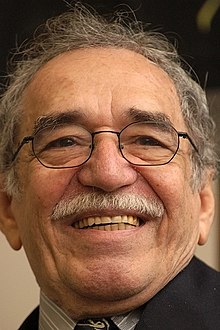| public myers-briggs votes | (21/05/13 00:11) Darkstar: INFJ | | (20/04/17 19:38) bibliology: INFJ |
| (18/12/02 14:56) LadyX: INFJ |
| (18/06/19 05:47) EON: xNxx |
| (18/06/15 04:25) lvna: INxJ |
| (18/10/10 12:56) strawberry crisis: INTJ |
| (18/06/19 04:00) Stephen Hearts: xSxx |
|
| public function votes | (21/05/13 00:11) Darkstar: INFJ | |
| public enneagram votes | (21/05/13 00:11) Darkstar: 4w5 | | (18/05/02 04:59) strawberry crisis: 1w2 |
| (18/05/02 03:42) Stephen Hearts: 1w2 |
|
| public instinctual variant votes | (21/05/13 00:11) Darkstar: so/sp | | (18/05/02 04:59) strawberry crisis: so/sx |
| (18/05/02 03:37) Stephen Hearts: so/sx |
|
| public tritype® votes | (21/05/13 00:11) Darkstar: 416 | |
| public sociotype votes | (21/05/13 00:11) Darkstar: IEE | | (18/09/15 16:22) LVNA: IEE |
| (18/10/10 12:56) strawberry crisis: IEE |
|

 "One night a friend lent me a book of short stories by Franz Kafka. I went back to the pension where I was staying and began to read The Metamorphosis. The first line almost knocked me off the bed. I was so surprised. The first line reads, “As Gregor Samsa awoke that morning from uneasy dreams, he found himself transformed in his bed into a gigantic insect. . . .” When I read the line I thought to myself that I didn’t know anyone was allowed to write things like that. If I had known, I would have started writing a long time ago. So I immediately started writing short stories." This sounds like perceived writing as S, realized it could be N, began writing.
"One night a friend lent me a book of short stories by Franz Kafka. I went back to the pension where I was staying and began to read The Metamorphosis. The first line almost knocked me off the bed. I was so surprised. The first line reads, “As Gregor Samsa awoke that morning from uneasy dreams, he found himself transformed in his bed into a gigantic insect. . . .” When I read the line I thought to myself that I didn’t know anyone was allowed to write things like that. If I had known, I would have started writing a long time ago. So I immediately started writing short stories." This sounds like perceived writing as S, realized it could be N, began writing.  have y'all...read the interview or interviews with and about Marquez in general? and the way Marquez is using the word intuitive in that interview is not incompatible with how it's generally used in MBTI. he's talking about how his methods of writing as an author of fantastical/magical things were appropriated from his practical experience as a journalist and from grounded sources and inspiration.
have y'all...read the interview or interviews with and about Marquez in general? and the way Marquez is using the word intuitive in that interview is not incompatible with how it's generally used in MBTI. he's talking about how his methods of writing as an author of fantastical/magical things were appropriated from his practical experience as a journalist and from grounded sources and inspiration.  Be careful with the notion of intuitivity-it really differs whether you're within a typology paradigm or not :°>
Be careful with the notion of intuitivity-it really differs whether you're within a typology paradigm or not :°> If anything N seems his most obvious function, even tough he would have scored lower on a test by his own self characterization.
If anything N seems his most obvious function, even tough he would have scored lower on a test by his own self characterization. I think Marquez meant "intuitive" in reference to his ingenuity, in which the N/S connection does hold a bit of merit—but I do think Marquez had a very humbled view of himself and that he even if he were to see himself as sensing, his work demonstrates that he was in fact very intuitive and that he basked in that world.
I think Marquez meant "intuitive" in reference to his ingenuity, in which the N/S connection does hold a bit of merit—but I do think Marquez had a very humbled view of himself and that he even if he were to see himself as sensing, his work demonstrates that he was in fact very intuitive and that he basked in that world.